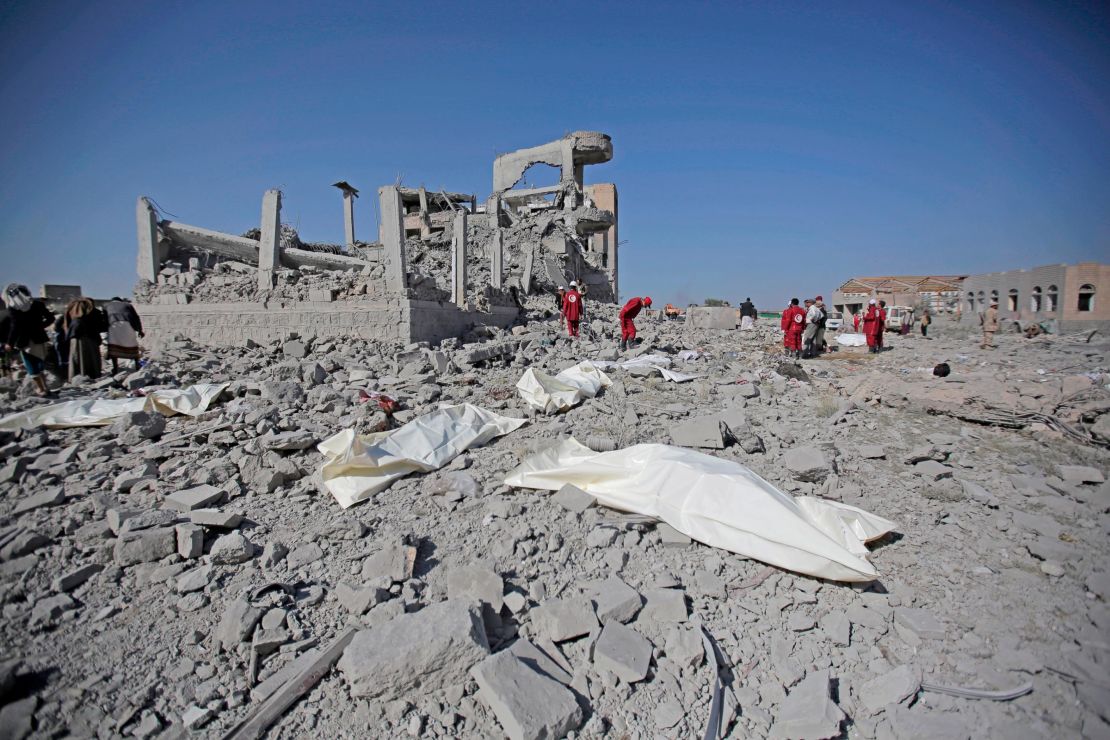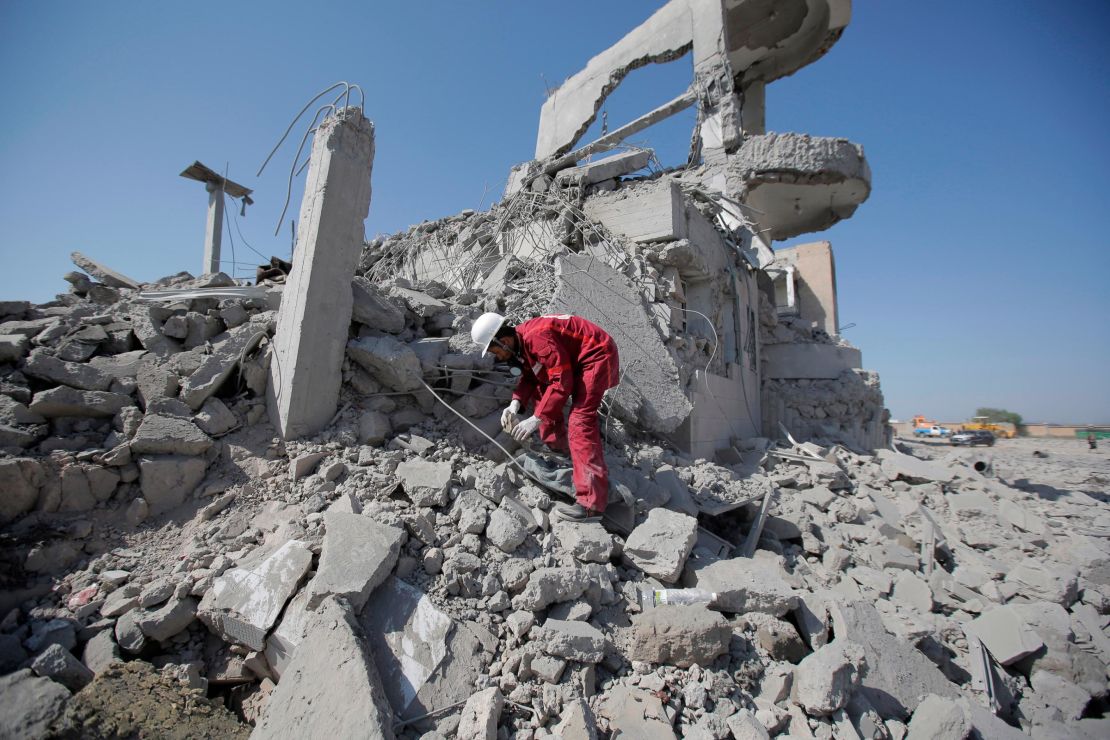The United States, United Kingdom, France and Iran may be complicit in war crimes in Yemen by supplying weapons to various parties involved in the conflict, a United Nations panel has said.
The supply of weapons “perpetuates the conflict” and has prolonged the suffering of the Yemeni people, Melissa Parke, a member of the UN-commissioned Group of Eminent Experts on Yemen, said during a news conference presenting the panel’s findings.
The panel also accused coalition partners Saudi Arabia, the United Arab Emirates and the internationally recognized Yemeni government – along with the Iranian-backed rebels fighting the coalition – of enjoying a “pervasive lack of accountability.”
UN investigators have prepared a “confidential list of possible perpetrators” of rights violations, another member of the panel, Charles Garraway, said.
Garraway pointed the finger at the US, the UK, France and Iran as “known” suppliers of weapons to Yemen, but said the commission didn’t prepare a detailed list of suppliers.
“The group of experts has recommended that third states prohibit the authorization of arms transfers and refrain from providing arms to parties to the conflict. This is because of the prevailing risk that such arms will be used by parties to commit or to facilitate serious violations of international humanitarian and human rights law,” he added.
The panel’s report highlights allegations of torture, sexual violence and arbitrary detention, and says warring parties may be “using starvation” and siege-like tactics as methods of warfare.
“The parties to the conflict in Yemen are responsible for an array of human rights violations and violations of humanitarian law. Some of these are likely to amount to war crimes,” said Parke. “The practical impact of these violations on the lives of ordinary Yemenis has been immense and wide-ranging.”
A UK government spokesman told CNN: “The UK has been at the forefront of international efforts to bring a diplomatic solution to the appalling conflict in Yemen. We operate one of the most robust export control regimes in the world.”
Alireza Miryousefi, a spokesman for Iran’s mission to the UN, told CNN: “As to the claim that Iran is somehow responsible for ‘war crimes,’ that is beyond ridiculous. The Saudi coalition, with assistance from the West, is waging war on Yemen and committing documented war crimes, while Iran has repeatedly asked for negotiations to end the war.”
The US and France did not immediately respond to CNN’s request for comment.
Reacting to report, Oxfam’s Yemen Country Director Muhsin Siddiquey said: “The violations outlined by the UN are shocking and are all the proof that’s needed of the misery and suffering being inflicted on the people of Yemen by a war partly fueled by international arms sales.
“The international community needs to stop arming the parties to this conflict and instead urge all involved to commit to a nationwide cease fire and inclusive negotiations that will lead to a lasting peace.”

Prison airstrike
The report comes days after the Saudi-led coalition conducted its deadliest strike in Yemen this year, and the second deadliest since Saudi Arabia and its allies intervened in Yemen’s war in 2015. At least 110 people were killed in the airstrike on a Houthi-controlled prison holding 170 prisoners of war on Sunday, the head of the Yemen delegation of the Red Cross (ICRC) told CNN.
The building “entirely collapsed and there were dead bodies in the rubble. There were also … human remains laying around,” Franz Rauchenstein told CNN after visiting the site. He described the scene as “deeply shocking and deeply saddening.”
The ICRC had visited the prison several times before, Rauchenstein said.
UN Special Envoy Martin Griffiths dubbed the attack a “tragedy,” and called for an inquiry.
The Saudi-led coalition said the prison was not on the UN’s “no strike list,” and tha it had hit a “legitimate military target” which included drones and missile depots.
In a news conference on Monday night, coalition spokesman Turki al-Malki said: “The coalition was never informed about this location. The Houthis bear full responsibility for using this location to (detain) forcibly disappeared Yemenis.”
Around seven airstrikes hit Yemen’s Dhamar province on Saturday and Sunday, according to the spokesman of Yemen’s Houthi-held health ministry.

According to Rauchenstein, the victims of the airstrike on the prison were likely prisoners of war, who would have been released as part of the Stockholm agreement, signed last December by Yemen’s warring parties. The ICRC has been tasked with supervising the exchange though it has not yet materialized.
The Stockholm agreement aimed to scale down the violence, but has stalled in recent months. The prison airstrike occurred as Swedish Foreign Minister Margot Wallstrom was visiting the region in an attempt to revive talks.
Over 91,000 people have been killed in Yemen’s war since 2015, according to the Amred Conflict Location and Even Data Project (ACLED).
The war has pitted a Saudi-led coalition against Iran-backed Houthi rebels. Recent weeks have also seen coalition partners turning on each other, with UAE-backed separatists fighting Yemen’s Saudi-backed government in deadly street battles. The separatists were supported by Emirati airstrikes which targeted Yemeni troops last week.





